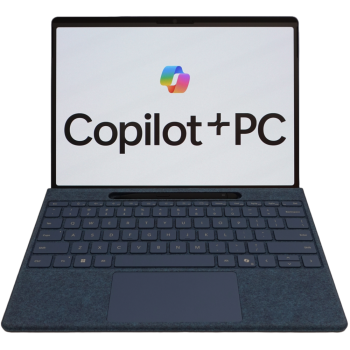A couple of years ago, in an earlier stage of the technology, I put up a post at this blog entitled Chat GPT Tries to Preach Lutheran Sermons. I asked the AI chatbot to write some Lutheran sermons with two prompts of different specificity, and the products were comically bad.
Whether or not AI preaching has improved, more and more ministers are using it to write their sermons. Right now, 12% of Protestant clergy say they are comfortable using AI to write their sermons. And 43% see the value of using it in sermon preparation and research.
I suspect the number will increase, now that the major word processing software, Microsoft Word, has built it in, so that the moment you start a new document, Copilot offers to do your writing for you. But the majority of ministers have qualms about it.
“It’s like a mini research paper you have to prepare every week,” said Naomi Sease Carriker, pastor at Messiah of the Mountains, a Lutheran church in Burnsville, North Carolina. “And some weeks … life is just a lot.”
Carriker said clergy tend to talk about AI in hushed tones. But recently, during one of those busy weeks, she opened up ChatGPT. She plugged in the Bible reading for the week, along with a few blog posts on the passages she particularly admired.
“And boom. Literally within not even 30 seconds, I had a 900-word sermon. And I read through it and I was like, ‘Oh my God, this is really good,’” she recalled. But she also thought, this feels wrong.
The article gives the arguments pro- and con-. Let me briefly recount the reasons given for why letting Artificial Intelligence generate the sermon is ethical. (I set aside the question of using AI in the course of research and sermon preparation. I don’t see any ethical issues, as such, in using AI as a search engine, as long as you click to the original sources so as to make sure you are not going to transmit AI-generated hallucinations.)
(1) AI Will Do It Better
“Some clergy point out using AI isn’t just about avoiding the grind or scholarship, instead arguing it can draw upon far more sources than any one human could access.” Well, contrary to what Carriker says, a sermon is not supposed to be a research paper. Rather, it is an act of communication between the preacher and the members of the congregation. Does ChatGPT know the members of your congregation?
(2) AI Will Free Up Time for What Is More Important
Instead of skimming over the human needs of the congregation, another set of arguments takes the opposite tack, claiming that AI will increase pastoral care. “It can also free up time for pastoral care, allowing clergy to prioritize providing counsel or sitting at a bedside of someone who’s dying.”
Sermons are supposed to be pastoral care. This is why they are such a priority. But even if you minimize the importance of preaching in favor of one-on-one pastoral care, do a mental experiment. Would you be in favor of clergy “providing counsel” by means of an AI chatbot? Would you be fine with comforting someone who is dying by providing an AI-generated recording? If not, if you believe pastoral care ministry needs to be personal, why would you want sermons to be impersonal?
(3) AI Sermons Are Fine If You Identify Them As Such.
The article notes that few denominations, from Southern Baptists to Roman Catholics, give anything but vague guidelines on the topic. “The Church of Jesus Christ of Latter-day Saints probably comes the closest to addressing sermon writing, saying that AI content could be used with attribution.”
Plagiarism is using someone else’s work and presenting it as your own. As such, it violates the Commandments against stealing and against false witness. The usual way to avoid plagiarism is to give credit to the actual writer, as well as marking borrowed passages with quotation marks or indentation.
Presenting an AI sermon as if it were your own is indeed a type of plagiarism. But in this case, there is no original author you are stealing from. AI is not a person, and there is no text apart from what the algorithm generated from your prompt. You are not violating copyright by using the machine’s words, since courts have ruled that AI-generated material cannot be copyrighted. You aren’t bearing false witness since AI is not a neighbor who can be harmed.
There is, in fact, a tradition of pastors sometimes preaching a sermon written by some other pastor. During the Reformation, Luther published sermons for every Sunday of the year that were meant to be preached by local pastors throughout Saxony so that all of the congregations would be well-grounded in Reformation theology. These were the “Church Postils,” which Luther with good reason considered “the best of all his books.” I have been in services in which the pastor told us that he would be preaching a sermon by Luther. I have even been in services in which the pastor said that his sermon would draw from that of a brother pastor, who was named. I don’t see a problem with that, as long as pulpit fellowship rules are upheld, since it’s sort of like having a guest pastor doing the preaching. (None of this happened with my regular parish pastors.)
So attribution is important, but it doesn’t really address the problems with AI preaching, in which there is no pastor doing any of the preaching.
The Real Problem with AI Preaching. . .
The article quotes Carriker again:
While Carriker decided not to preach the AI sermon, she said she does use the technology to get her draft started or wrap up what she’s written with a nice conclusion.
“Why not, why can’t, and why wouldn’t the Holy Spirit work through AI?” Carriker asked.
And here we get to the real problems with AI sermons! It isn’t just an ethical problem. It’s a theological problem.
We’ll get into that tomorrow.











